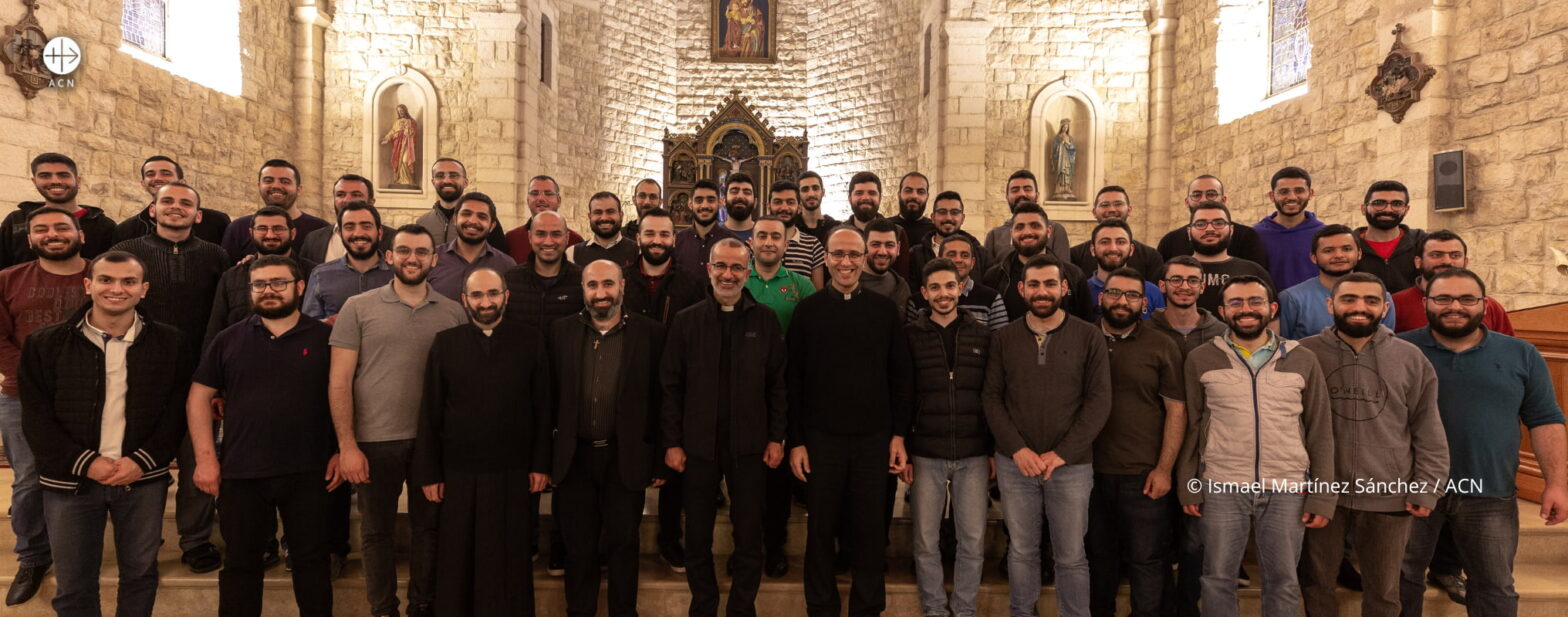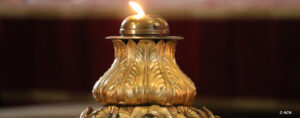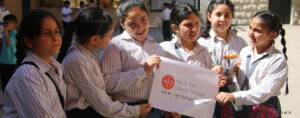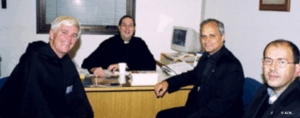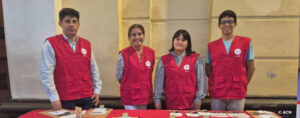Aid to the Church in Need (ACN) supports the formation of seminarians all over the world. In Lebanon, this is about more than just preparing men to be good priests; it has to do with guaranteeing a peaceful future for the country, and a stable environment in which Christians can thrive.
The Maronite Patriarchal Seminary in Ghazir is the main seminary for the Maronite Church in Lebanon, as well as the world. With the economic and political crisis that has hit Lebanon so severely over the past few years, resulting in the generalized impoverishment of society, it has become increasingly difficult to maintain the seminary and pay for the formation of dozens of candidates to the priesthood. True to its mission to help support seminarians all over the world, ACN has stepped in with financial aid. The young men are grateful, but the most important help they need, says 25-year-old Joseph Loutfi, is prayer.
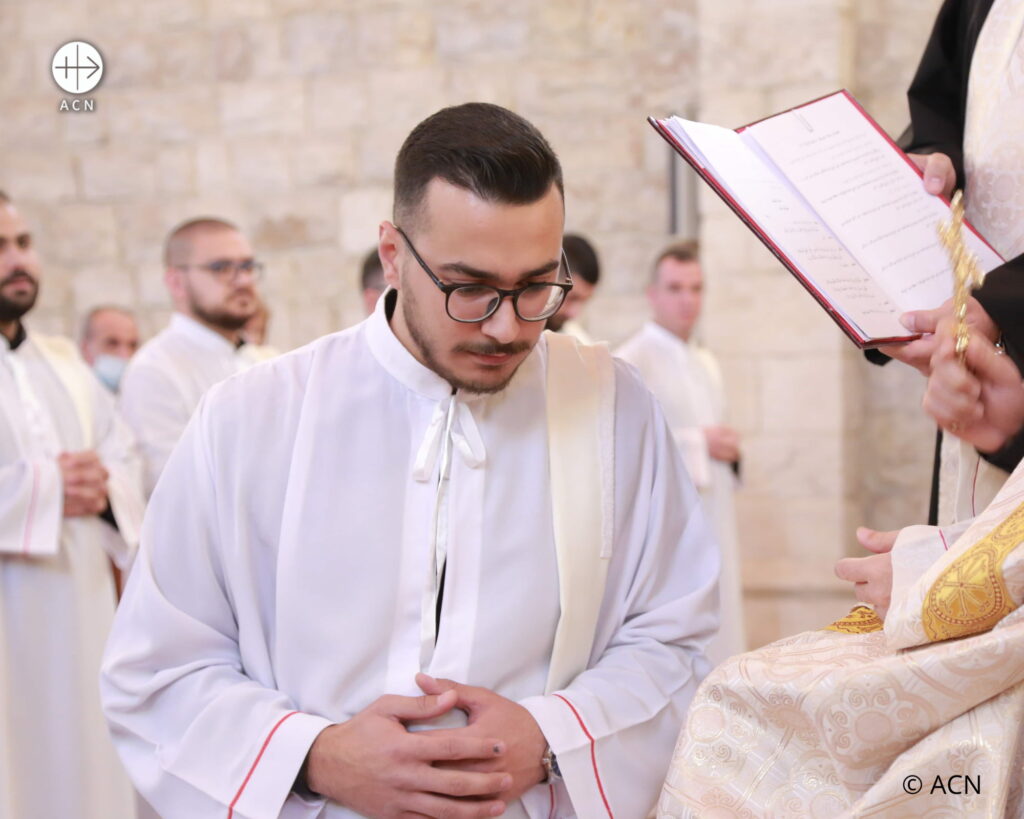
In 2019, nearly all Lebanese dioceses saw their funds vanish overnight, making it difficult for them to afford to pay for the tuition and formation of their seminarians. Today, the country is experiencing a political and economic crisis, in the absence of a cabinet and president due to a political deadlock, which many Christians blame on the influence of the Iran-funded Islamist movement Hezbollah.
“At the seminary, we discover our strengths and weaknesses, and we learn to develop a personal relationship with God, which is crucial to the life of a consecrated person. But the circumstances are making it difficult to focus on our formation, so please pray for us,” he says.
His friend Chadi Chata, 26, agrees. “We are facing a very difficult situation, and it may still get worse. But nonetheless, God has chosen to send dozens of young men to serve in his field!”
At a time when Christianity appears to be in retreat in the Middle East, due to persecution and economic migration, these seminarians are shining a light for the Gospel, he explains. “We speak the language of the Quran. We can show our Muslim brothers the truth of God and make a difference to their lives. Please pray that we can become true, strong priests.”
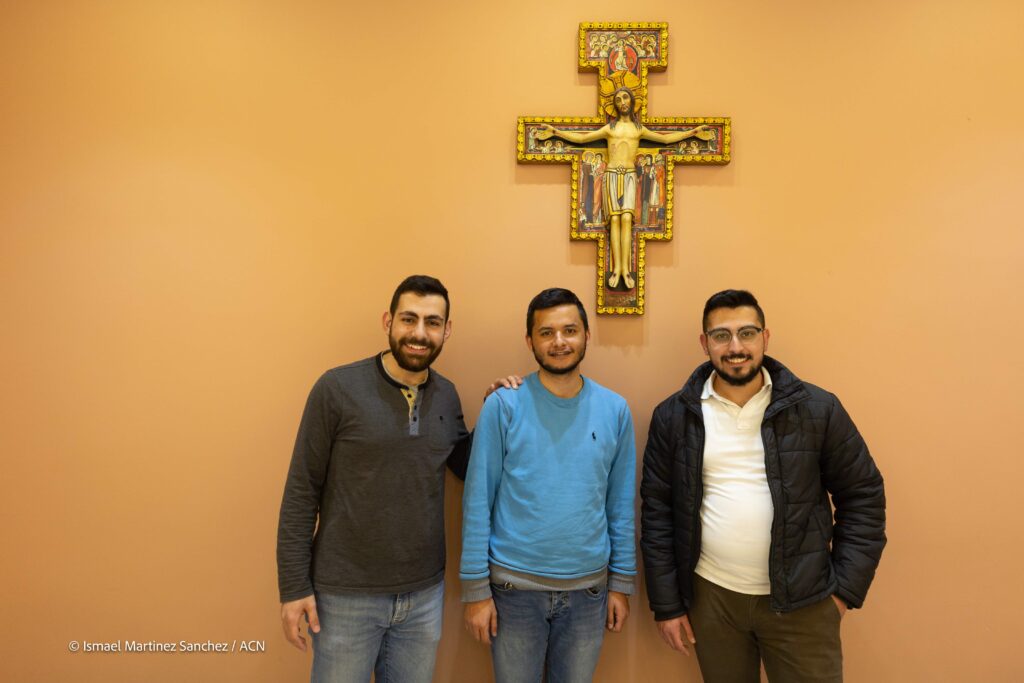
Lebanon has 18 officially recognized religious communities, including a variety of Christian and Muslim denominations. For 15 years, between 1975 and 1990, a bloody civil war pitted them against each other, and after 30 years of peace, some fear that the economic crisis could widen the divide once more. In this context, Christians are a much-needed presence in a country which “bears the footprints of Jesus, making this a sacred land,” says Johnny Estephan, aged 24. According to the Gospel, Jesus visited the lands that currently make up Lebanon, including the southern cities of Tyre and Sidon.
“In regions where Christians and Muslims live side by side, we are witnesses of Jesus Christ to Muslims, and a bridge between the East and the West,” he adds.
Keeping religious harmony, despite “masked discrimination”
Raymond Elia, 41, still has his theology notes on the table. “It is important to study,” he says, “but studying is not enough. We can read all the theology books, and the Bible from cover to cover, and still not know anything about Jesus Christ. We have to know Him in here,” he adds, pointing to his heart.
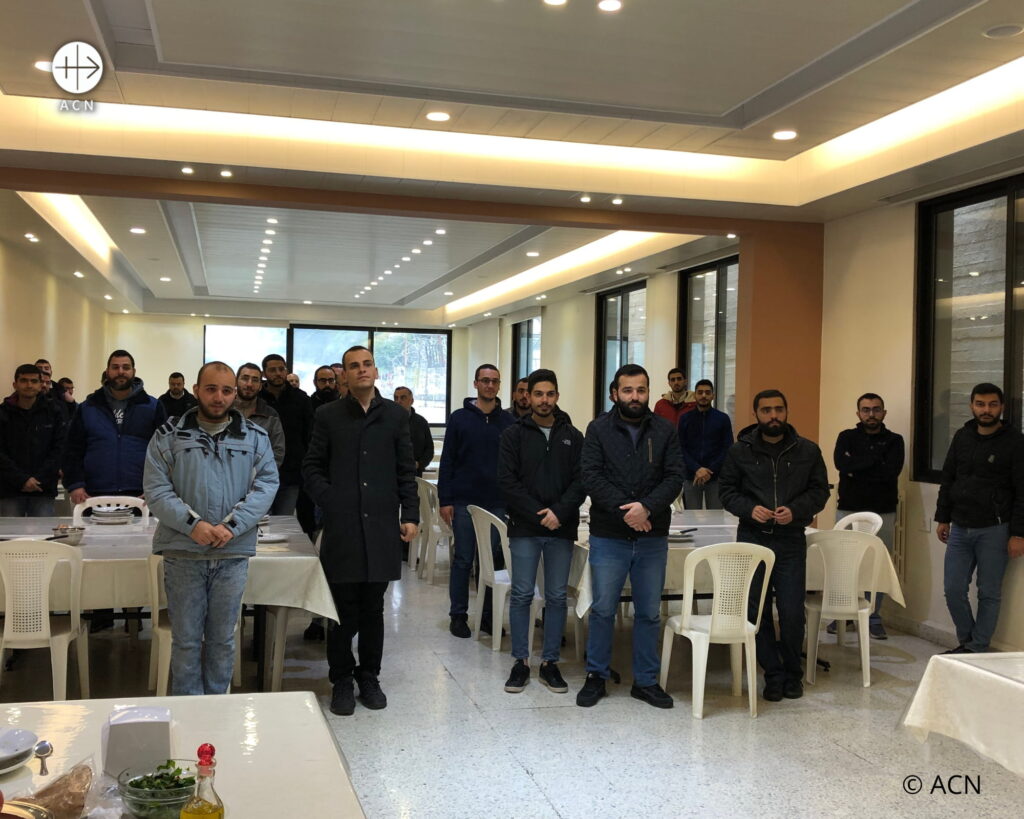
Raymond is a member of a charismatic movement and back in his home parish, he was responsible for welcoming and preparing Muslims who wished to convert to Christianity. Unlike in many other Middle Eastern countries, conversion is legal in Lebanon, if still socially frowned upon. Nonetheless, he had his hands full. “Many Muslims want to learn more about Jesus Christ. There are many conversions,” he says.
One language they all do need to study is Syriac, the liturgical language of the Maronite Church. At the request of the rector of the seminary, 25-year-old Roy Zeidan stands up and sets the tone for a stunning collective rendition of the Hail Mary in what is the closest living language to the Aramaic spoken by Jesus.
Despite the freedom of religion and of speech that exist in Lebanon, Johnny Estephan complains about “masked discrimination,” but says that even so, “we are still vigilant in guarding interreligious harmony. You will find Christians living in villages with Muslims or Druze, but you will not find two different branches of Islam living peacefully side by side. We present good role models for others.”
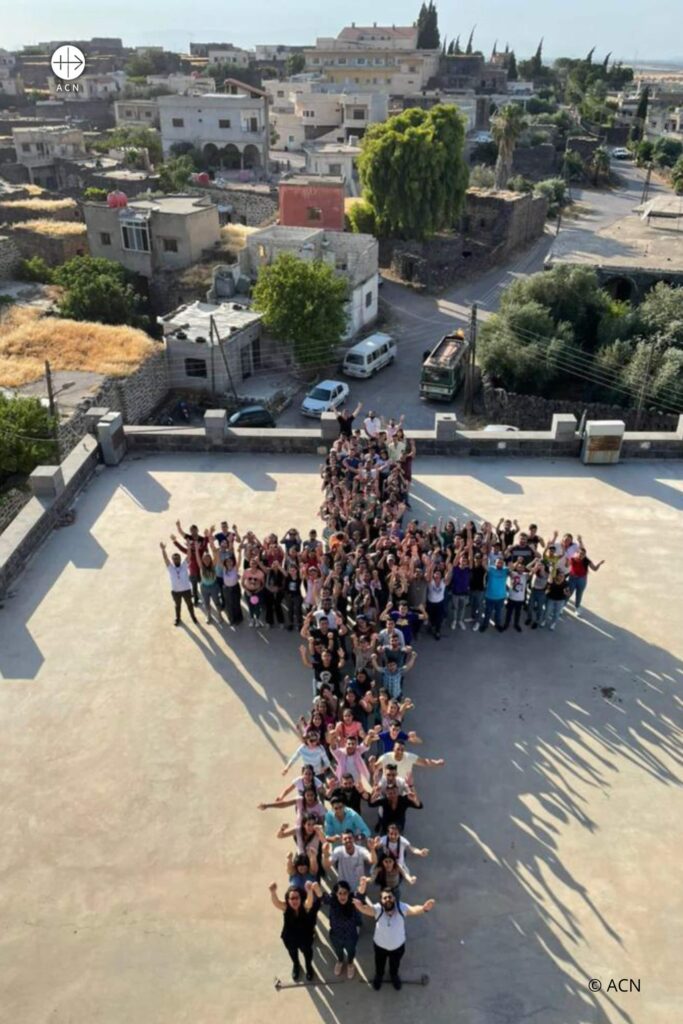
The economic crisis has led many Lebanese to seek a better life outside of their homeland. Being generally better educated, more at ease with Western culture, and less comfortable with the growing military and political influence of Hezbollah, Christians tend to migrate in higher numbers, and over the decades have gone from a majority to only about 30% of the population.
Without Christians, the existence of Lebanon is not at stake, Johnny insists, but it really depends on what sort of Lebanon we want to see. “Without Christians, there will still be a Lebanon, but there will not be a peaceful and harmonious Lebanon,” he warns.
Religious life and practice are crucial to Lebanese of all religions, and the existence of a strong parish life is an anchor that keeps many Christians from leaving their land. This is only possible with good, well-formed priests, such as the dozens of young men at the Patriarchal Seminary who continue to thrive in their studies and in the pursuit of their vocation thanks to the generous support of ACN benefactors from all over the world.

